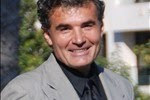Why is it so Important to Study "Bible Prophecy"?
Bible
prophecy confirms the divine inspiration of Scripture. Bible prophecy
exalts God above all others as the only One who knows the end from the
beginning. We are exhorted to listen to and heed Bible prophecy.
Prophetic declarations exalt God and confirm the divine inspiration of Scripture:
Isaiah 46:9-10
Remember
the former things, those of long ago; I am God, and there is no other; I
am God, and there is none like me. I make known the end from the
beginning, from ancient times, what is still to come. I say: My purpose
will stand, and I will do all that I please.
Over one fourth of the Bible consists of Bible prophecy:
In
addition to the Old Testament books of Isaiah, Jeremiah, Ezekiel and
Daniel and the twelve Minor Prophets, a good portion of the Psalms and
many other passages such as Genesis 49 record future events.
In
the New Testament, four books - I and II Thessalonians, Jude,
Revelation, as well as many passages in the Gospels and in the other
epistles deal with prophecy.
The Second Coming of the Lord is mentioned 318 times in the New Testament.
Salvation is the only subject referred to in the New Testament more frequently than the Second Coming.
The
ordinance of communion is only recorded twice in the thirteen epistles
of Paul, but the return of Christ is mentioned fifty times.
The
Bible contains 1,817 individual predictions concerning 737 separate
subjects found in 8,352 verses. These numerous predictions comprise 27
percent of the 31,124 verses in the whole of the Scriptures.
We are exhorted to listen to and heed prophecy:
2 Peter 1:19
And
we have the word of the prophets made more certain, and you will do
well to pay attention to it, as to a light shining in a dark place,
until the day dawns and the morning star rises in your hearts.
Revelation 1:3
Blessed
is the one who reads the words of this prophecy, and blessed are those
who hear it and take to heart what is written in it, because the time is
near.
All
of the Feasts of the LORD were appointed times which not only
commemorated historical events that took place for the nation of Israel,
but also are prophetic pictures that foreshadowed Christ. Jesus Christ
fulfilled the spring cycle of biblical festivals in His First Advent by
instituting the New Covenant at the Passover; being entombed during the
Feast of Unleavened Bread; resurrecting on the Festival of Firstfruits;
and sending the promised Holy Spirit at Pentecost.
Heavenly Father forgive us our sins, open our spiritual eyes and ears to your truth. Amen

















